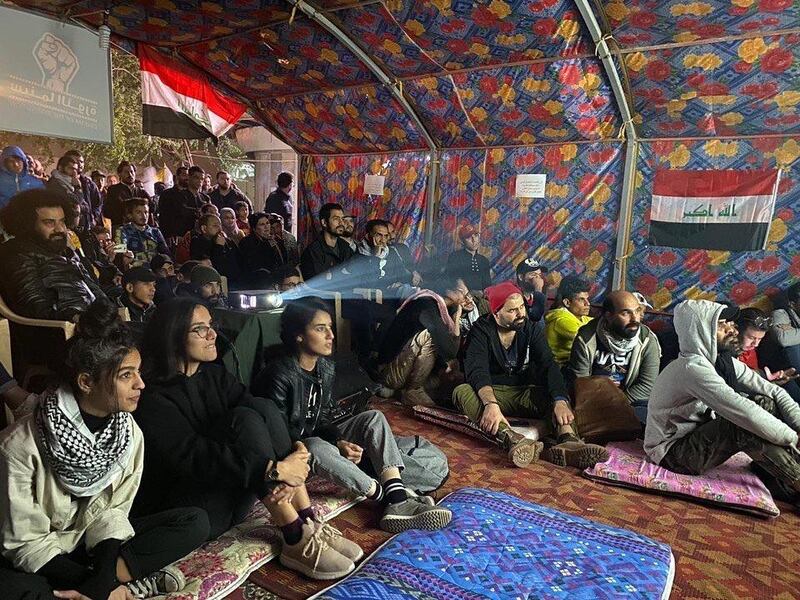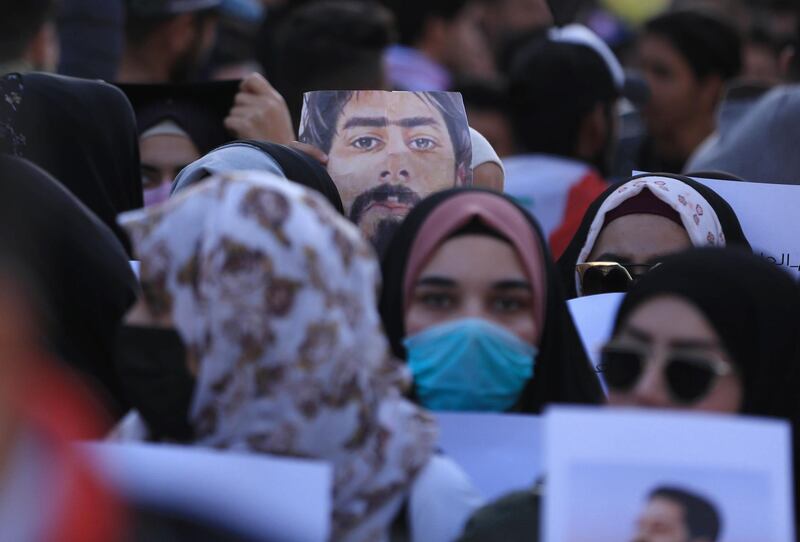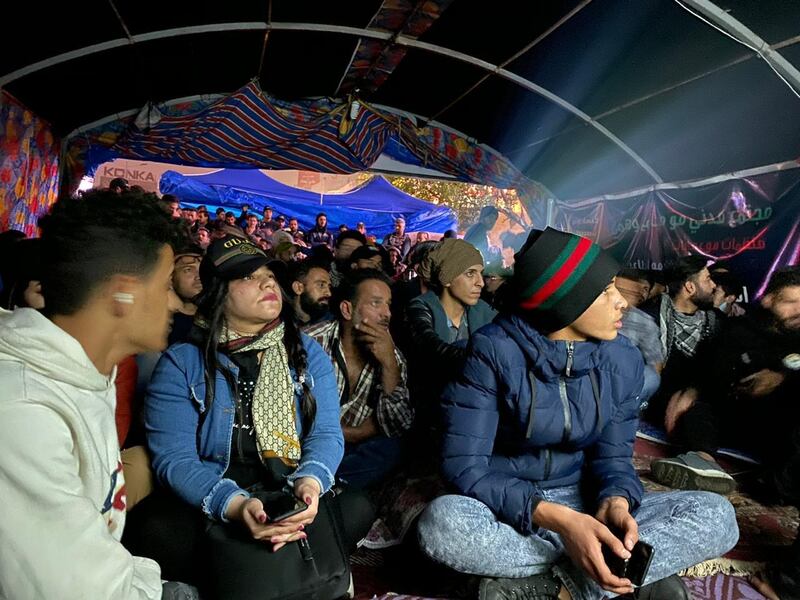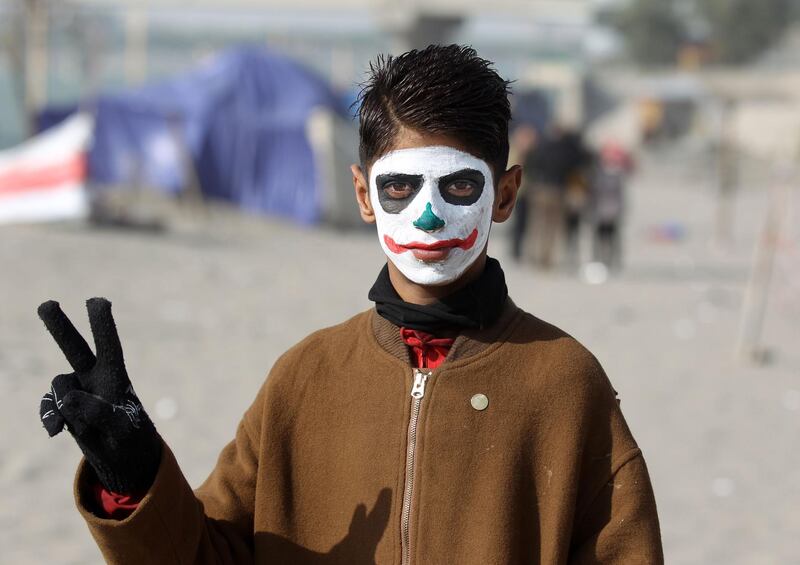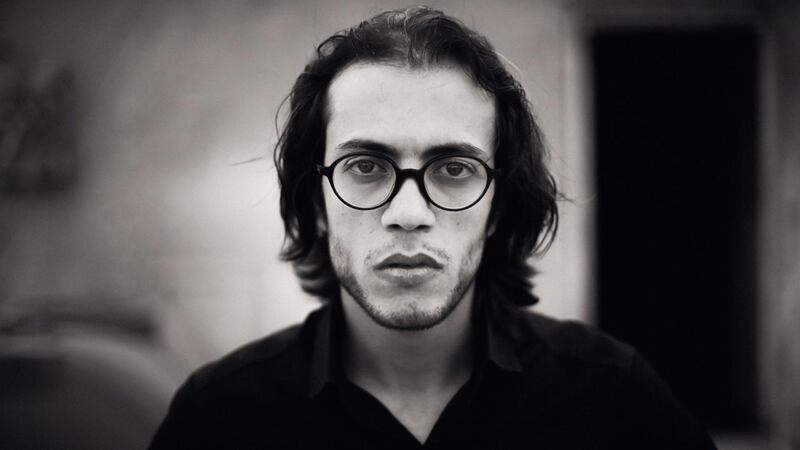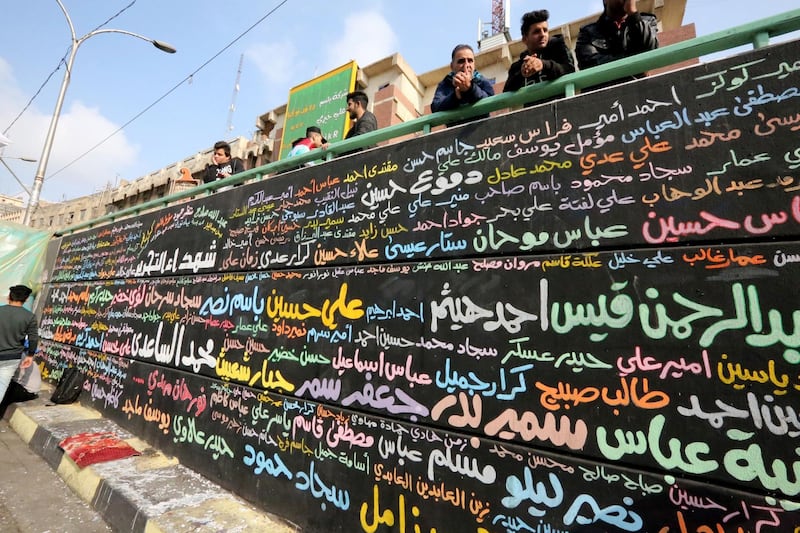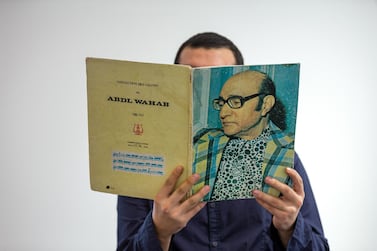Since October 1 last year, Iraqis have been taking to the streets to demand change, the end of widespread corruption and for the ruling elite to step down. They have braved bullets, tear gas, violent militias and refused to back down. Artists and filmmakers have been at the forefront of the uprising, risking everything to make the voices of Iraqi people heard.
"We, as artists, are one with the people and we must tell our people's story as we live it," Mohanad Hayal, an independent filmmaker, tells The National. He helped launch Cinema of the Revolution in Baghdad's Tahrir Square, the beating heart of the protests.
This cinema tent hosts daily screenings of short films made by Iraqi professionals, as well as amateurs and beginners. It has also served as a space for artists, movie-lovers and ordinary Iraqis to meet. “The idea is to mend the relation between people and cinema,” says Hayal, “and to put the spotlight on aspiring Iraqi talent”.
On its opening day in November, only 10 people showed up to the screenings. Now, there are more than 600 people who attend Cinema of the Revolution’s daily activities. “Had the tent been bigger, I am sure we would have welcomed a thousand people,” says Ali Raheem, an independent Iraqi producer and one of the tent organisers.
"In a society where politicians, leaders and the media promote corruption and bad behaviour, you feel that your soul is stranded. Alone," says Hayal. This loneliness has become a thing of the past since the demonstrations started, and the tent has become a place for people who want to rally change.
Raheem recalls one particular encounter with a young man who approached him after a screening. "He said it was the first time he had seen a movie in his life." He started going to the tent daily and reserved a chair an hour before screenings started.
"Art keeps the revolution alive in people's hearts," says Hayal. "We Iraqis cannot live without culture." This yearning for the arts is reflected in the country's uprising, which has taken cinematic proportions. "Have you heard of the Joker? He is in Iraq," he says, referring to Ahmed Shwqy's images of Joaquin Phoenix's Joker among Baghdad's protesters, which went viral.
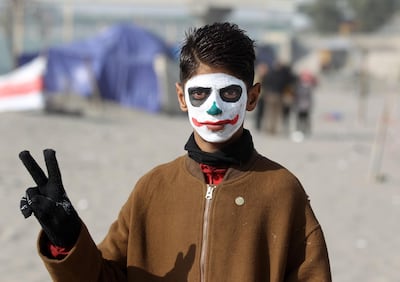
'Theft in the name of art'
Funding for arts and culture projects is difficult to obtain in Iraq. One in four Iraqis lives in poverty, and the oil-rich nation is plagued by widespread corruption. According to NGO Transparency International, Iraq is one of the 15 most corrupt countries in the world.
However, Iraqi filmmakers have found a platform to voice their woes and highlight the pervasiveness of nepotism in all facets of society during the ongoing protests. "Corruption in politics is no different than corruption in the film industry," says Raheem. "Take the 2013 initiative, 'Baghdad Arab Capital of Culture,'" he says, referring to a project that was allocated millions of dollars to revive the arts sector, including the production of films. Raheem says these funds were supposed to help produce 14 films, with $1.5 million (Dh5.5m) allocated to each project. In the end, the initiative only helped to make one movie. "Where did all the money go?"
For Raheem, the answer is clear. He says fictitious art foundations are being used to syphon state funds, a practice he dubs "theft in the name of art".
Cinema of the Revolution has been raising awareness about that kind of corruption in the arts, in the hope of bringing much-needed support to aspiring filmmakers. The organisers plan to launch a free three-week workshop this month for Iraqis interested in filmmaking.
"It's very difficult for Iraqis to make it in the film industry," says Hayal. His latest movie, Haifa Street, which was produced by Raheem, has been widely acclaimed. Last year, it received the Best Film Award at the prestigious Busan International Film Festival and won Best Film and Best Actor at the Cairo International Film Festival. But he says it was an uphill battle. "Every attempt I made at funding my film was mission impossible. It took me five years to make that movie."
During the days of Saddam Hussein's rule, filmmakers had no choice but to produce propaganda features or be shunned by the industry altogether. Now, artists have more room to breathe, but little financial support.
For the organisers behind Cinema of the Revolution, state institutions need to have a transparent process when allocating funds for projects. The Iraqi government should also help private production companies flourish.
But calling for change comes at a high price in Iraq. Since the onset of the uprising, more than 600 unarmed protesters have been killed by security forces and militia.
More than 17,000 people have been injured and hundreds more have disappeared. Anyone partaking in protests is a target, even people watching movies in a public square. "We could be killed at any moment, and we are ready to die at any moment," says Hayal.
Among the hundreds of Iraqis who died, some were talented artists – killed in the prime of their lives. Poet Safaa Al Saray, who was shot dead on October 28, aged 26, has become the face of the protests and the figurehead of a generation that has only known conflict and instability.
Last week, Mohammed Allawi was nominated as Iraq’s new prime minister-designate, more than two months after the resignation of his predecessor Adel Abdul Mahdi, who oversaw much of the government clampdown on the protests. Allawi vowed to protect demonstrators and urged them to keep on protesting. Many have indeed taken to the streets – to reject his nomination. Allawi has held two ministerial positions before, and has been accused of being part and parcel of a failed system that protesters want to see gone.
The Iraqis are yet to see what change this will bring them, but until then, they will keep fighting, even if it’s just by watching a film in a tent in a public square. “This is a generation of people filled with despair,” says Hayal. But desperation hides great strength. “We have nothing left to lose, we hold the Iraqi flag high and face the bullets.”
